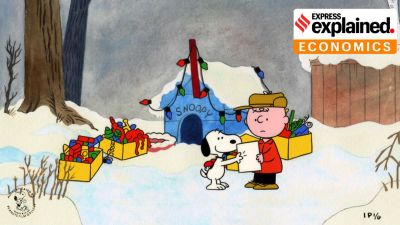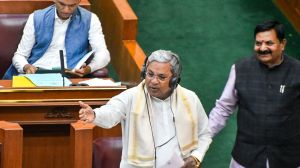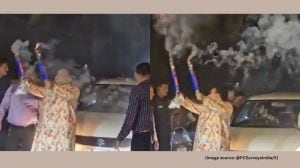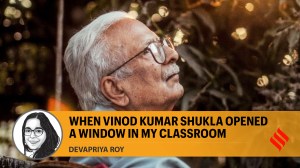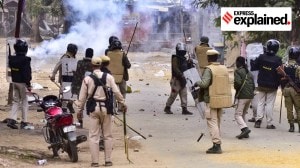Poll pot
Nasha do, vote loJALORE: Changing political colours may bring some immediate gains but has its pitfalls. Congress candidate Buta Singh wa...

Nasha do, vote lo
JALORE: Changing political colours may bring some immediate gains but has its pitfalls. Congress candidate Buta Singh was at the receiving end of a gaffe arising from such confusion at a rally in Bagra Jalore recently. He was with state forest minister Bhagraj Choudhary who spoke at length on Buta8217;s merits. And concluded his speech with 8220;To is baar phir engine ko haath de kar Dilli pahunchaiye So this time again push to the engine and send it to Delhi8230;This engine will take you to progress and prosperity.8221;
Now the engine was Buta8217;s symbol in 1998 when he contested as an Independent after quitting the Congress when denied a ticket. This time the symbol has been allotted to another candidate. Someone quickly brought this to the notice of Choudhary. Aghast, he snatched the mike back, screaming, 8220;Arre suniye, dhyaan dijiye! Butaji ke haath par mohar laga kar vijayi banaiye! Yaad rakhiyega, haath, haath, haath, engine nahin, haath! Hey listen! Please payattention! Put your seal on the hand and make Buta victorious.
Please remember, the hand, the hand, not the engine. KHARAR: 8220;Nasha do, vote lo8221;. That seems to be the slogan of parties in the Kharar and Morinda assembly segments of Roopnagar Reserve Lok Sabha seat Send people into a stupor to get votes. Pain relievers and cough syrups, which have an intoxicating effect, are being used to woo youths. Liquor, opium and poppy husk no longer seem to be popular.
Though poll managers deny the charge, a survey by this correspondent reveals a spurt in the sale of these drugs. Several chemists, who spoke on the condition of anonymity, say the same trend was noticed during the panchayat polls. They claim they are flooded with orders from parties. These drugs are anyway cheaper than opium and poppy husk and their consumption is more in the rural areas than in the urban areas.
8212; Pawan Kumar Jain and Rajesh Sinha
- 01
- 02
- 03
- 04
- 05


